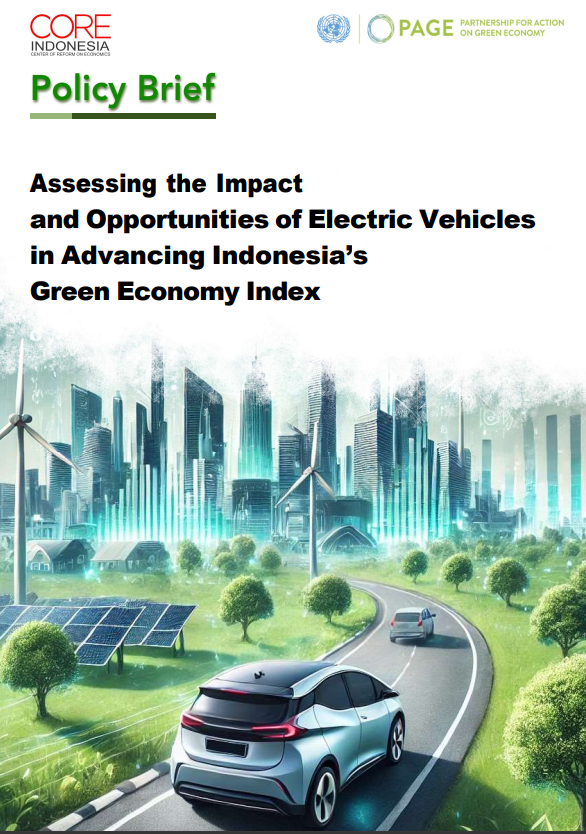
Policy Brief: Assessing the Impact and Opportunities of Electric Vehicles in Advancing Indonesia's Green Economy Index (Available in English Only)
Indonesia’s transition to electric vehicles (EVs) is a key strategy under its Green Economy Index and long-term national development plan (RPJPN 2025–2045). Despite ambitious targets for EV adoption by 2030 (44% market share for both electric cars and motorcycles), the current penetration remains low due to high vehicle costs, limited charging infrastructure, and challenges in meeting local content requirements (TKDN). The government has introduced various fiscal and non-fiscal incentives and developed a comprehensive regulatory framework to support EV development, but implementation inconsistencies and regional disparities persist. Furthermore, domestic manufacturing of EVs, especially batteries, is constrained by insufficient R&D capabilities and technological expertise, despite Indonesia’s vast nickel resources.
A scenario-based analysis shows that the EV Impact scenario—focusing on building a domestic EV ecosystem—offers the greatest long-term benefits. By 2060, it is projected to deliver stronger GDP growth, create over 2 million jobs, and boost labor productivity more than other approaches. However, it also presents higher energy use and slightly lower emissions reductions due to local manufacturing energy demands. To maximize the benefits and address critical challenges—such as fossil-fuel reliance, battery waste, and workforce readiness—the brief recommends ten strategic actions. These include developing a national EV roadmap, sustaining financial incentives, scaling charging infrastructure, enhancing vocational training, and integrating renewable energy into the EV value chain.
Please download and read the policy brief document below to gain a better understanding (available in English only).
Download